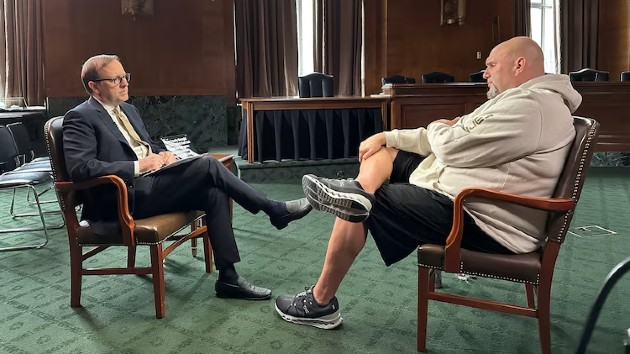Could limiting benefits based on needs fix shortfall?
Written by ABC AUDIO on June 17, 2022


Social Security provides benefits to seniors across a wide range of income levels. In fact, it’s possible to have a $3 million income in retirement but still collect Social Security.
But some lawmakers may be looking to change that by imposing a system of means testing for Social Security purposes. Here’s how that would work – and the impact it might have.
Social Security is facing a serious financial shortfall in the not-so-distant future. Recently, its Trustees projected that the program’s trust funds will be out of money by 2035. Once that happens, benefit cuts will be a distinct possibility unless lawmakers manage to find a way to pump more money into Social Security.
Social Security: The average couple gets $2,800 a month. Could you live off that?
How means testing works
One such option to achieve that goal is means testing. Means testing is the concept of distributing benefits to retirees based on need.
Now there are different ways means testing could play out. Lawmakers could decide that seniors above a certain income level might see their Social Security benefits reduced. Or, they might decide that higher-earning seniors can’t receive Social Security at all.
In a recent survey by the University of Maryland’s Program for Public Consultation, 81% of respondents favored reducing Social Security benefits for higher earners. And it’s worth noting that the idea received strong support from both respondents who identify as Republican and those who identify as Democrats. Furthermore, reducing benefits for the top 20% of earners could eliminate 11% of Social Security’s anticipated shortfall.
But while means testing could serve the important purpose of addressing Social Security’s financial woes, it begs the question: Is it fair?
Brace yourself: How Fed’s bigger rate hike will affect credit cards, mortgages, savings
And the answer? Not really.
Workers today are on the hook for Social Security taxes with the promise that they’ll be entitled to benefits down the line. Now, imagine someone who’s a higher earner pays those taxes for 45 years, only to then be told, come retirement, that they’re not getting benefits, or their benefits are getting reduced, because they also happened to save really well and have a large amount of nest egg-produced income.
A solution needs to be reached
Social Security can’t sustain benefits at their current level if lawmakers don’t find a way to address its anticipated financial shortfall. Means testing and reducing benefits for higher earners is one solution that could help solve the issue at least to some degree, but it’s one that’s not likely to sit well with many people. And given the backlash that could ensue, lawmakers may ultimately decide to go a different route.
In fact, there are other options on the table when it comes to preventing benefit cuts. One is to raise full retirement age, which is the age at which seniors can claim their Social Security benefits in full. Right now, that age is 67 for those born in 1960 or later. But given the way life expectancies have increased through the years, pushing that age back to 68 or 69 might come off as a more equitable solution that doesn’t discriminate based on personal wealth.
Waiting until after full retirement age to claim Social Security? Have a backup plan
Offer from the Motley Fool
The $18,984 Social Security bonus most retirees completely overlook: If you’re like most Americans, you’re a few years (or more) behind on your retirement savings. But a handful of little-known “Social Security secrets” could help ensure a boost in your retirement income. For example: one easy trick could pay you as much as $18,984 more… each year! Once you learn how to maximize your Social Security benefits, we think you could retire confidently with the peace of mind we’re all after. Simply click here to discover how to learn more about these strategies.
The Motley Fool has a disclosure policy.
The Motley Fool is a USA TODAY content partner offering financial news, analysis and commentary designed to help people take control of their financial lives. Its content is produced independently of USA TODAY.
The post Could limiting benefits based on needs fix shortfall? appeared first on Correct Success.




